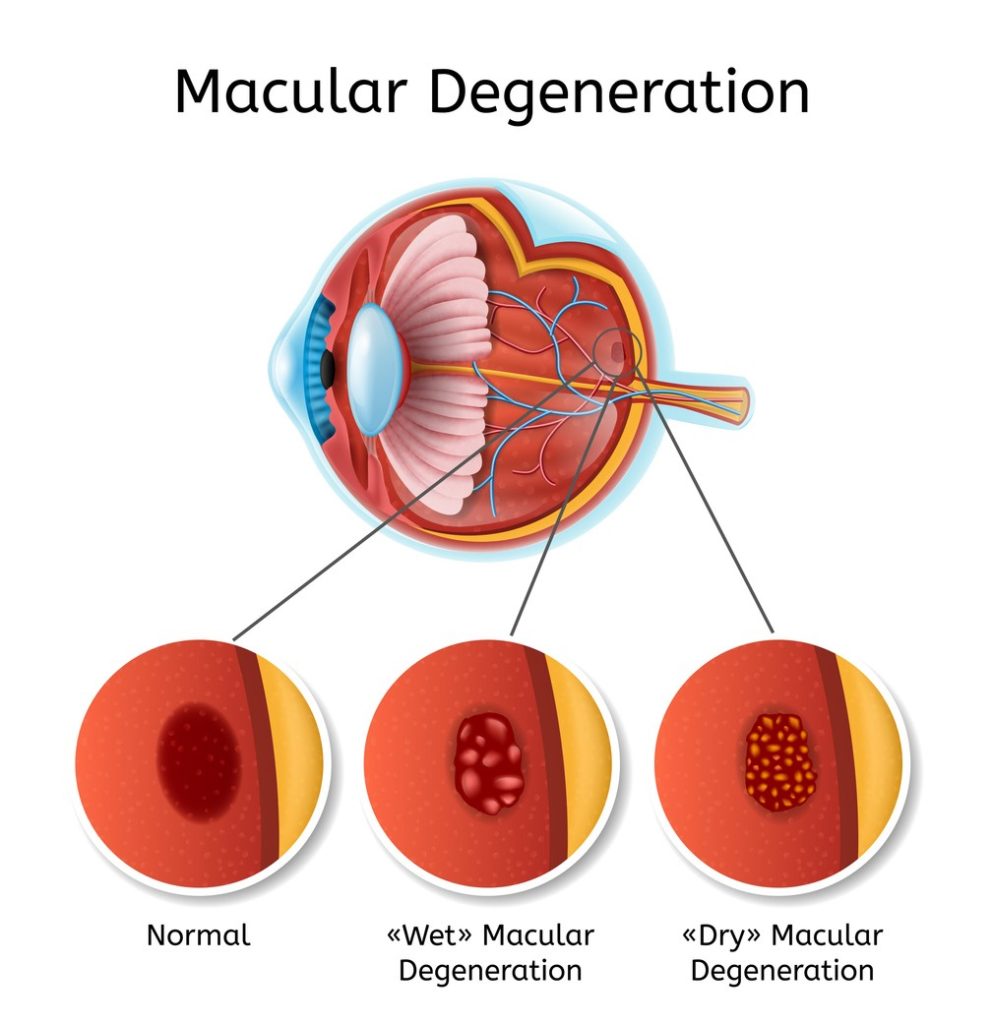Search
Search
AMD is the leading cause of vision loss in those 50 and older. 11 million people in the United States have AMD
Macular Degeneration, or more commonly age-related macular degeneration (AMD), is a progressive eye disease that causes central vision to blurry, while peripheral vision can remain unaffected. AMD appears when the central part of the retina deteriorates, most commonly due to age. AMD gets it’s name from the macula, name for the center of the retina, or the light sensitive layer of tissue at the back of the eye.
There are two types of AMD, wet macular degeneration and dry macular degeneration. Dry AMD, also known as atrophic AMD, is the more common type of AMD and progresses over 3 stages; early, intermediate, and late. Dry AMD usually progresses slowly, over several years.
Wet AMD, or advanced neovascular AMD, is less common, but usually causes more rapid vision loss. Wet AMD occurs when blood vessels form in the back of the eye and cause damage to the macula.
While AMD is most commonly caused by natural aging, risk of developing AMD is higher in people who:


Like many eye diseases, the symptoms can be difficult to spot and sometimes don’t present themselves at all. In early stage dry AMD, symptoms are typically not present. Intermediate dry AMD can cause mild symptoms, including mild blurriness in the central vision and difficulty seeing in low light. Late AMD (both dry and wet types) most commonly cause straight lines to appear wavy and a blurry spot in the central vision. Over time, that blurry spot can become larger and blank spots may appear in the vision.

Treatment of AMD depends on the type of AMD and its severity.
Currently, there is no treatment for early dry AMD so regular eye exams are crucial in monitoring the progression of the disease. Intermediate AMD can be slowed in an effort to prevent it from developing into late AMD by taking vitamin supplements and eating healthy foods.
Wet AMD can be treated to stop further progression of vision loss.
Although there is no known cure for age-related macular degeneration, treatments can slow the condition. An accurate diagnosis often requires in-office testing. Early detection through a regular dilated eye exam is a huge advantage for successful treatment in both types of AMD.
Whether your condition is in the early stages, advanced or if you’re just starting to experience vision problems, the specialists at Swagel Wootton are here to help. Request an appointment today to speak with a macular degeneration specialist.